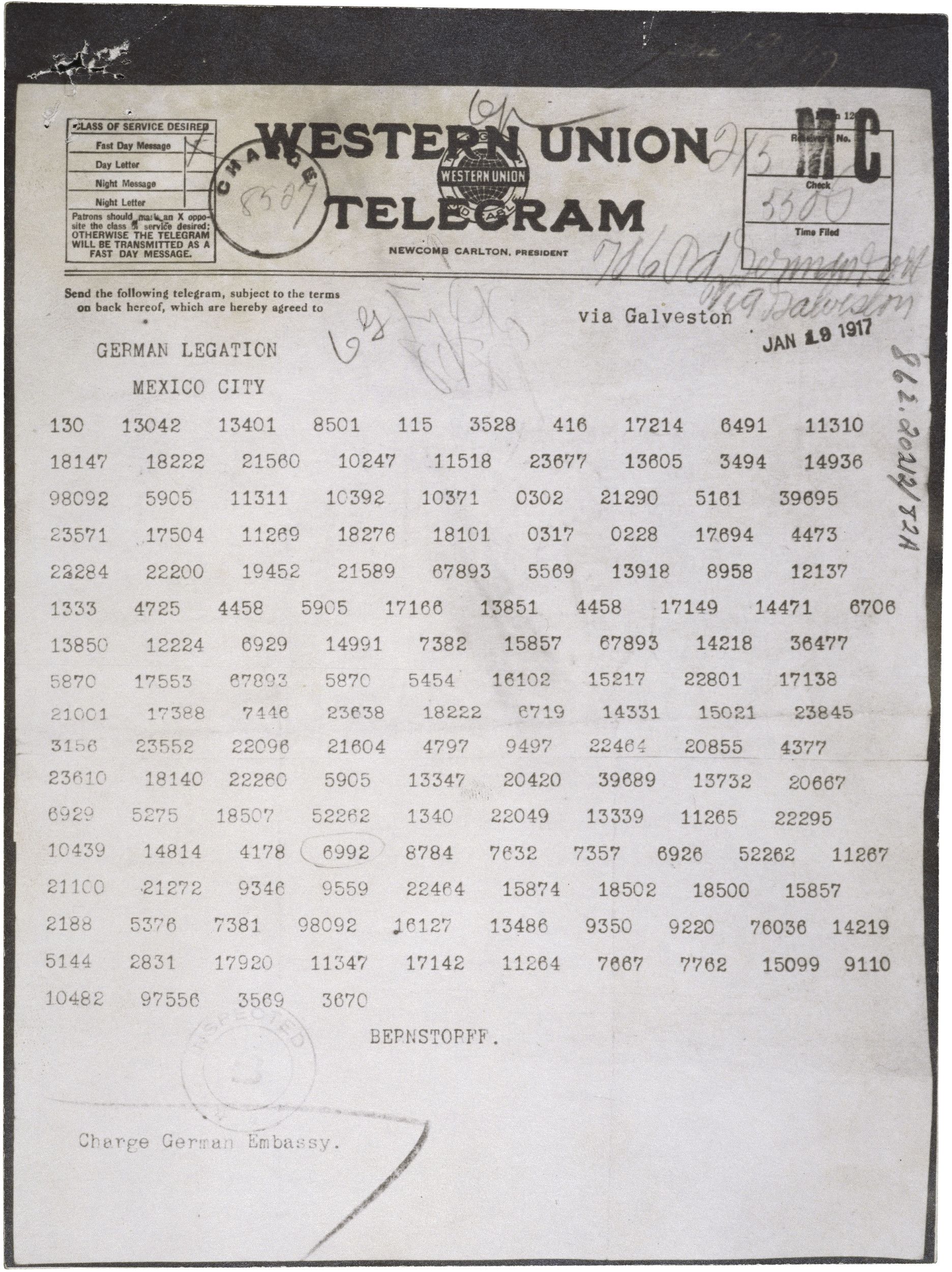Zimmermann Telegram as Received by the German Ambassador to Mexico
1/16/1917
Add to Favorites:
Add all page(s) of this document to activity:

German Foreign Minister Arthur Zimmermann sent this encoded message to the President of Mexico on January 16, 1917, offering United States territory to Mexico in return for joining the German cause in World War I. In return for the military alliance, Germany would help Mexico regain New Mexico, Texas, and Arizona from the United States. The obvious threats to the United States contained in the telegram inflamed American public opinion against Germany and helped convince Congress to declare war against Germany in 1917.
British intelligence had intercepted the telegram and deciphered it. In an effort to protect their intelligence from detection and to capitalize on growing anti-German sentiment in the United States, the British waited until February 24 to present the telegram and its translation to U.S. President Woodrow Wilson.
Meanwhile, frustration over the effective British naval blockade caused Germany to break its pledge to limit submarine warfare. In response, the United States severed diplomatic relations with Germany in February.
On February 24 Britain released the Zimmerman telegram to Wilson, and news of the telegram was published widely in the American press on March 1. On April 6, 1917, Congress formally declared war on Germany and its allies. The Zimmerman telegram clearly helped draw the United States into the war and thus changed the course of history.
British intelligence had intercepted the telegram and deciphered it. In an effort to protect their intelligence from detection and to capitalize on growing anti-German sentiment in the United States, the British waited until February 24 to present the telegram and its translation to U.S. President Woodrow Wilson.
Meanwhile, frustration over the effective British naval blockade caused Germany to break its pledge to limit submarine warfare. In response, the United States severed diplomatic relations with Germany in February.
On February 24 Britain released the Zimmerman telegram to Wilson, and news of the telegram was published widely in the American press on March 1. On April 6, 1917, Congress formally declared war on Germany and its allies. The Zimmerman telegram clearly helped draw the United States into the war and thus changed the course of history.
This primary source comes from the General Records of the Department of State.
National Archives Identifier: 302025
Full Citation: Zimmermann Telegram as Received by the German Ambassador to Mexico; 1/16/1917; 862.20212 / 57 through 862.20212 / 311; Central Decimal Files, 1910 - 1963; General Records of the Department of State, Record Group 59; National Archives at College Park, College Park, MD. [Online Version, https://docsteach.org/documents/document/zimmermann-telegram-as-received, April 23, 2024]Activities that use this document
- The Zimmermann Telegram
Created by the National Archives Education Team
Rights: Public Domain, Free of Known Copyright Restrictions. Learn more on our privacy and legal page.
